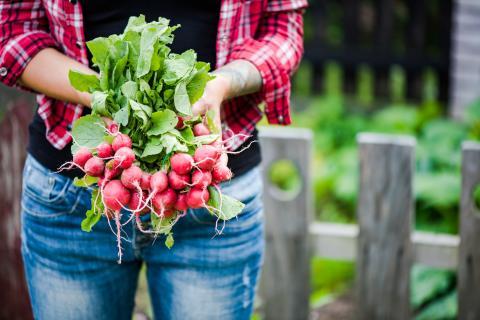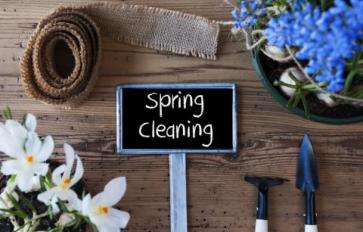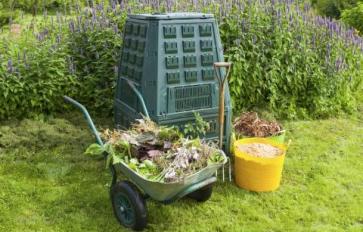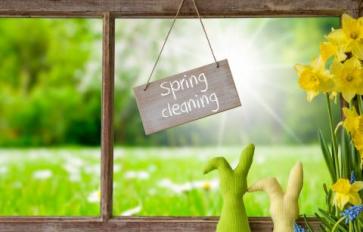
Sustainable gardening is a green-gardening practice that is quickly increasing in modern popularity. The whole concept wrapped around the idea of sustainable gardening is eco-harmony. Sustainable gardening means working with nature and the environment, and not against it. By being conscious of how you impact the environment and preserve our earth’s resources when gardening, you are greatly contributing to the harmony and balance of this planet.
Want to know how you can be more sustainable while gardening? Wish granted! Here are 10 ideas to practice gardening the sustainable way.
1. Grow pest resistant plants.
Having harmful pests in your garden is no fun. By growing plants that are pest resistant, you are allowing nature to work as your own personal pest control. Why not make it easier on yourself and the environment by growing plants that keep harmful pests away from your garden? Now you can say good-bye to those harsh, toxic, synthetic, chemical sprays!
2. Grow native plants.
Growing native plants in your garden is both important and beneficial. Native plants are plants that have naturally originated from a specific, designated geographical region. It is easy for native plants to flourish when they are planted in their usual native environments. I actually prefer growing native because they require less maintenance. When you choose to grow native plants in your garden, you are choosing to work with nature and not against it. Now that’s sustainability!
3. Grow plants that require less water.
Some plants require very large amounts of water. We should definitely be trying our hardest and all we can to conserve water while gardening. So with that in mind, we can help conserve our earth’s valuable resource by growing more plants that do not need large amounts of water.
4. Collect rain runoff.
Another great way to conserve water and work with nature is to collect rain runoff for watering plants. Now keep in mind, some state laws prohibit the collecting of rainwater. But if you are able to collect rain in barrels and containers for the purpose of watering your garden, Mother Nature will surely thank you.
5. Weed manually.
Removing weeds from your garden by hand or with gardening tools means you aren’t using harsh sprays or chemicals to remove them. Many herbicides and chemicals used to prevent weeds can contaminate the air, water, and soil, while also killing off beneficial plants and insects. Now, it may mean more work, but it is definitely worth helping out the planet—if you ask me.
6. Grow organically.
Growing organically means growing plants using natural methods and excluding the use of synthetic products—such as fertilizers, herbicides, and pesticides. One way to practice organic gardening is by using organic matter. Organic matter includes things like compost, grass clippings, dried leaves, and manures. The main thing is to keep your gardening methods as natural as possible.
7. Reuse & recycle materials.
Do you have old wood or bamboo? Reuse it to build a gardening fence, create a garden teepee, or to tie up your tomato vines. Use fallen branches to build veggie trellises and arbors. Recycle containers or cups and use them to grow or start new plants. Reusing and recycling garden materials will help you save earth’s resources, as well as money.
8. Create natural fertilizer.
Instead of going to the store and buying synthetic fertilizer, improve your soil naturally by making your own. A few ways this can be done is by adding things like compost, grass clippings, manure, or ground kelp meal. Creating your own fertilizer by using natural items that you already have access to will make your gardening easier and more sustainable.
9. Utilize your local neighbors.
If you have neighbors or local businesses that may have what your garden needs, then why not ask them for it? Many local businesses have excess materials that you can use for your own organic home garden. Need grass clippings, but have no grass? Try asking your neighbors for theirs. Instead of going out and buying things for your garden right away, first check and see if others in your surrounding community or area have what you need.
10. Be smart when seeding.
Be smart when seeding! If you have left over seeds, try trading them with other people instead of purchasing new seeds. Gather the seeds from your harvest, and save them for next year’s growing season. Utilize your local seed library if you have one! Seed libraries are a great way to obtain seeds and support sustainable gardening within your community.
The overall goal of sustainable gardening is to do as little damage to earth and the environment as possible. You can do this by using some or all of the ideas mentioned above. Let’s show Mother Earth and the creatures living here some big love by gardening sustainably.








